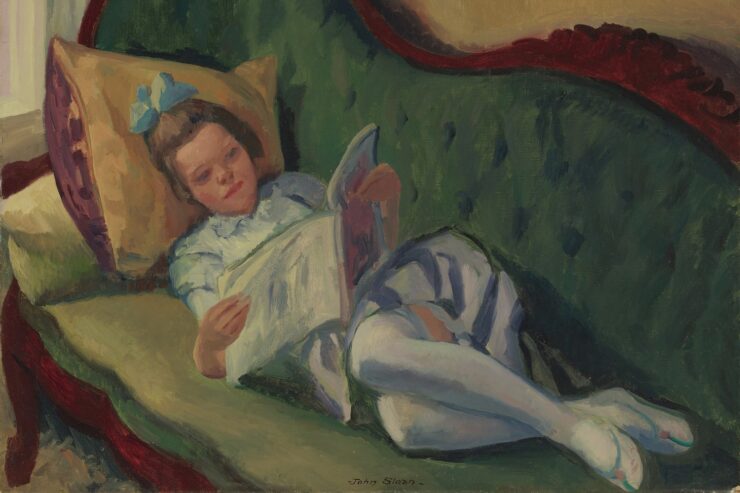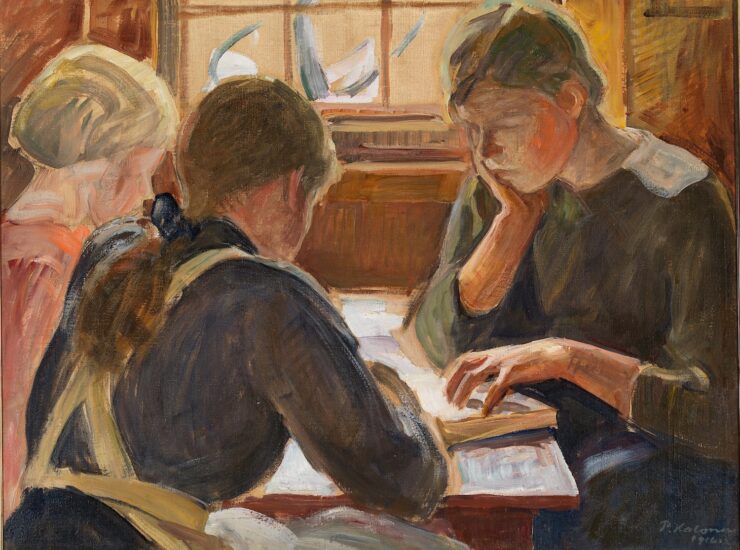We’ve all been there: consumed with a desire to read but without any concrete idea of what in particular one wants to read. There are many strategies for finding books to read—which I will get back to at a later time—and it is quite possible to end up with so many potential reads that choosing between them seems an impossibly large task. In such cases, external tools to narrow down the possibilities can be useful. Allow me to suggest some guideposts that might direct you to your next book.
Is this unclear? Perhaps five examples will help. But be aware, each comes with potential drawbacks.
Themes
The simplest solution is to seek out books sharing some specific common element that appeals to you. Found families, interplanetary flight, books set in the year 2000, post-apocalyptic, authors who dated or were married to Judith Merril… The exact nature of the common element need only be two-fold: it should interest you, and there should be a number of available books.
Possible problems: (1) Themes that are too broad, giving me so many choices that I have a hard time choosing just one. (2) Themes that are so narrow that few or no books fit. There was a long stretch in the 1990s when I kept rereading the same interplanetary SF books because so few new ones were being written.
Book Series
Another possibility is set out to read the complete run of a sufficiently diverting series. There are many series out there. Indeed, sometimes it seems as if it is harder to find non-series books than series books. Series offer a number of advantages, not least of which is being able to watch authors’ development over the course of their careers.
You may want to decide whether you prefer ongoing series or completed ones; the first provides the delightful anticipation of unwritten books (which may never be written), while the other provides a concrete goal towards which you can read (and having read, find oneself needing a new goal). Also, it’s probably a good idea to establish beforehand whether you prefer series in which each book stands alone or series that are essentially one very long book.
Anthology Series
Anthologies series offer the same multivolume reading experience as novel series, with the added benefit of letting you sample many different authors. Also, with the possible exception of shared universe projects, the odds are very good that each story will provide a complete tale. If you run into a story you don’t enjoy, the next one will be along soon enough.
The only possible catch to focusing on anthologies is that even if we exclude all the one-and-done anthologies, there are so many possible choices that further decision paralysis may ensue. Perhaps it would be best to decide what sort of anthology—Best SFF annuals, shared worlds, specific editors, and so on—one prefers, to narrow down the field somewhat.
Prolific Authors
If you have specific tastes, then you may want to focus on particular authors, the more prolific the better. Happily, there have been and are authors who have had long careers or write so quickly that even the most determined reader would be hard pressed to list all of the author’s works, let along read them all. In some cases, readers may find it difficult to keep up. Not naming names here, Seanan and Adrian…
There is really only one catch to this approach, but it is a significant one. Reading a stack of books by the same author is an excellent way to discover and become increasingly annoyed by some of the writers’ stylistic and thematic quirks. While reading fifty Poul Anderson books, one must needs mutter “Judas Priest” on encountering the same Anderson-specific turn of phrase over and over.
Awards
Finally, one can leave the heavy lifting of winnowing out the chaff to hard-working award juries and voters. Speculative fiction loves its awards. Even if you ignore the awards that failed to prosper, there have been and are enough awards that at least one is likely to align with your interests. Venerable awards will suggest enough winners to keep most readers busy for some time. Unusually quick readers can expand the candidate pool to include the finalists.
The catch here—there’s always a catch—is that juries and voter pools evolve over time, as does the pool of fiction eligible for awards. For example, the stories in Asimov’s second Hugo winners anthology are radically different from the more prosaic stories in the first. It is not uncommon to find one’s tastes and the award’s tastes diverging.
* * *
Those are five methods I use. Perhaps there are additional methods. Better methods. If you know of some, please mention them in comments.














